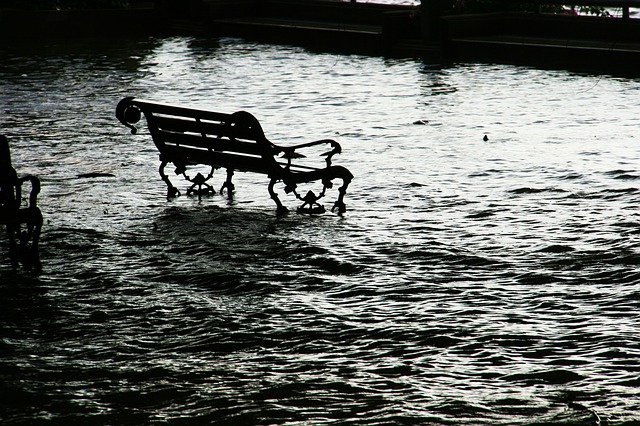Recovering your business safely after flooding
 The HSE has issued guidance following widespread severe flooding at the end of 2015 and into early 2016.
The HSE has issued guidance following widespread severe flooding at the end of 2015 and into early 2016.
Employers will now be thinking how to safely get their business up and running again, as the waters recede. The HSE has answered the following FAQs to help employers get back to business, safely.
How can I minimise the risks from floodwater?
- Avoid coming into direct contact with floodwater if possible, as it can contain sewage and chemicals. If you have to go into the water, wear waterproof gloves and rubber boots.
- Take care if you have to go into floodwater – there could be hidden dangers like sharp objects, raised manhole covers and pollution.
- Keep open cuts and sores clean and use waterproof plasters to protect them.
- Always wash your hands with soap and warm water after contact with floodwater or after cleaning up.
How can I dry my premises safely?
- Do not use petrol or diesel generators or other similar fuel driven equipment inside, as they can produce poisonous levels of carbon monoxide, which can kill. Always follow the manufacturer’s instructions.
- When handling or storing petrol or other fuel to use with generators, make sure you have suitable containers and keep them away from ignition sources.
- Ensure good ventilation if using portable indoor heaters to dry out indoor spaces.
What about the electrical safety of the building and any equipment?
- Do not touch sources of electricity if you are standing in water, because of the risk of shocks and burns.
- If you are concerned that essential electrical equipment may have been damaged by flooding, consider getting it checked. The Electrical Safety Council has electrical safety advice for homes affected by flooding link to external website.
How can I clean up my premises?
- Wear rubber boots, overalls and waterproof gloves during the clean-up.
- Hoses are useful for washing down. If you are scrubbing or hosing you should wear a suitable protective clothing to protect you from splashes of contaminated water.
- High pressure hoses may blast contamination into the air and it is recommended that you use appropriate protection for your eyes and face.
- Do not mix chlorine-based bleaches with other detergents, as this may release hazardous fumes.
- Remember to wash your hands and all safety clothing, such as goggles, after each clean-up session, this helps to stop bacteria breeding.
What hazards do I need to be aware of when cleaning my premises?
- Wear suitable protective gloves when handling containers of hazardous chemicals in case they have been damaged during the flooding.
- If you think chemicals may have leaked during the flooding, take extra care entering any floodwater, especially in enclosed spaces where fumes may build up. Guidance on working with harmful substances is available.
- Advice on the safety of gas appliances after flooding link to external website can also be found online.
- If the clean-up involves any work with asbestos, seek specialist advice.
- Rats can move after their nests have been flooded, so be careful if you think your premises have been contaminated by rat droppings or urine, as their urine can spread disease. Wash your hands thoroughly with soap and warm water after contact.
Further help is also available on Gov.uk in Winter 2015 floods.
Recovering your business safely after flooding
The HSE has issued guidance following widespread severe flooding at the end of 2015 and into early 2016. Employers will
Lauren Applebey
SHP - Health and Safety News, Legislation, PPE, CPD and Resources Related Topics
Housing company fined more than £500k after worker suffers burns
Hundreds of workplace buildings to be inspected for safety this week
Company fined as worker has leg amputated

